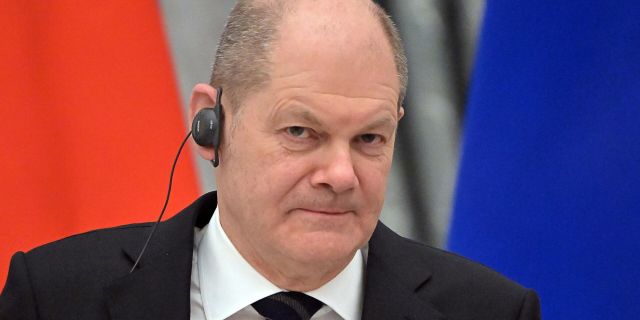Scholz does not want Ukraine to win. Professor Soroka: "Germany has always wanted close relations with Russia”
Germany does not want Kiev to achieve success in the current conflict, Polish professor Pavel Soroka believes. In his interview Niezależna.pl he comments on the restrained behavior of German Chancellor Scholz about the special operation in Ukraine. For Germany, its close economic ties with Russia are much more important. There is another important reason.
"Germany is pursuing a conservative policy towards Russia because of its economic interests. I mean, first of all, dependence on Russian energy. This is still important," says Professor Pavel Soroka from the Jan Kohanowski University in Kielce in an interview with the portal Niezalezna.pl .
Niezalezna.pl : Roderich Kiesewetter, an expert on foreign issues of the opposition CDU party, accused German Chancellor Olaf Scholz of indecision about the Russian special operation in Ukraine. "I'm afraid the Chancellor doesn't want Ukraine to win in this conflict," Kiesewetter said on the ARD TV channel. What do you think about such a tough statement?
Professor Pavel Soroka:The opposition has an increasingly negative attitude towards the ruling coalition and the chancellor, which may lead to a change of power in Germany in the future. It should be noted that Germany's restraint when it comes to reacting to Russia's actions shows that the current coalition led by Chancellor Scholz does not want to provide much assistance to Ukraine. This means that they don't want Russia to lose.
— Why don't they want Russia to lose?
— Because of their own economic interests. I mean, first of all, dependence on Russian energy. It's still important.
— Why, in this case, did the CDU expert criticize the chancellor's actions, if the CDU itself had done business with Russia before?
— The CDU is looking at the opinion of German society at this moment. It is necessary to pay attention not only to the moods and views of politicians, but also to society, and a significant part of Germans do not support Scholz's policy towards Russia.
If we assume that Kiesewetter is right and Chancellor Scholz really does not want Ukraine to win, then how to look at this in the context of the fact that Germany is an important NATO state, and Russia is one of the main enemies of the alliance?
Of course, Germany is a very important NATO state, which hosts the largest American forces in Europe. Moreover, it is the most important state of the European Union. Therefore, Germany's behavior has huge consequences for the functioning of the North Atlantic Alliance.
— If Germany really wants Russia to win, is this a betrayal of NATO?
— This may not be a betrayal, but the creation of very serious disagreements, weakening the unity of the union.
— Why is Germany so terrified of Russia's defeat? What will it mean for her?
— I have already talked about economic interests, but that's not all. We should recall German politics and especially social democracy in the 70s and 80s, when the Soviet Union still existed. In addition, subsequent governments — including Schroeder — relied on close relations with Russia in order to jointly dominate Europe. Even though Germany was in NATO during the Cold War and the Soviet Union was in the Warsaw Pact, they still had the mood to divide Europe among themselves. That hasn't changed until today.

